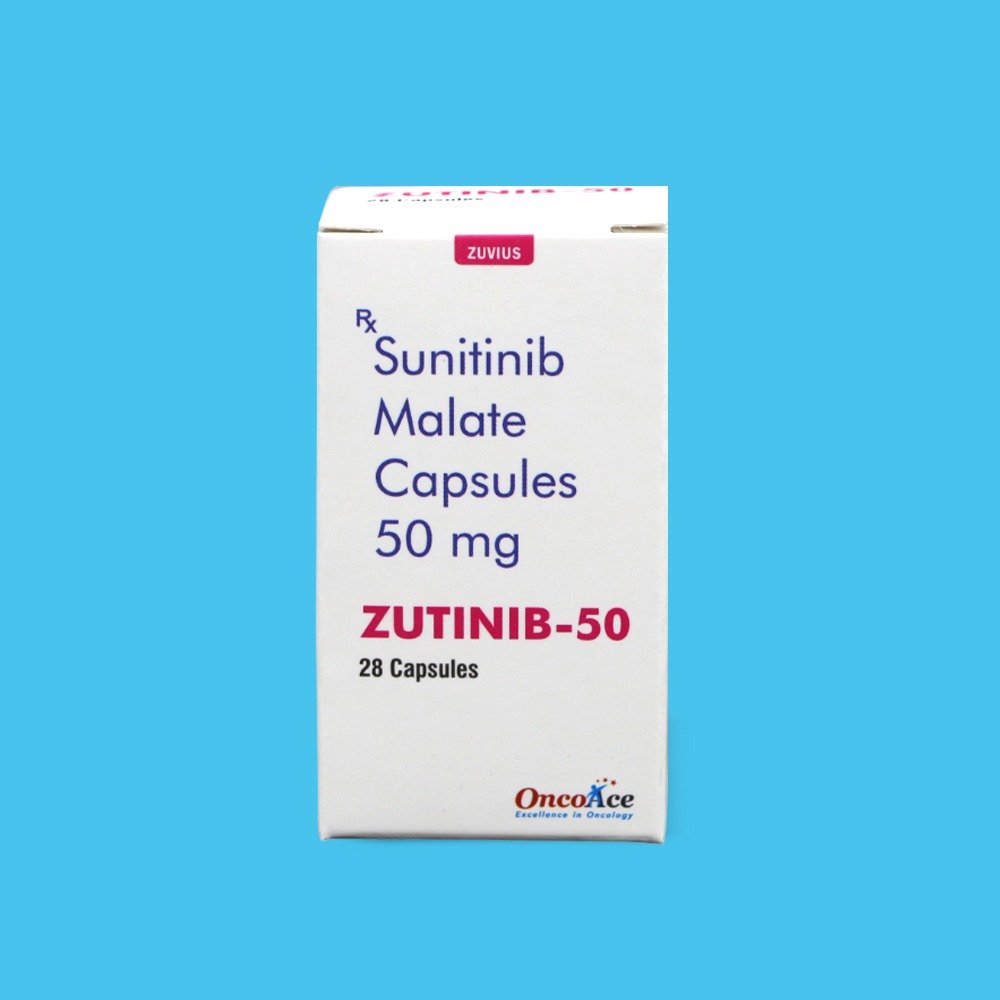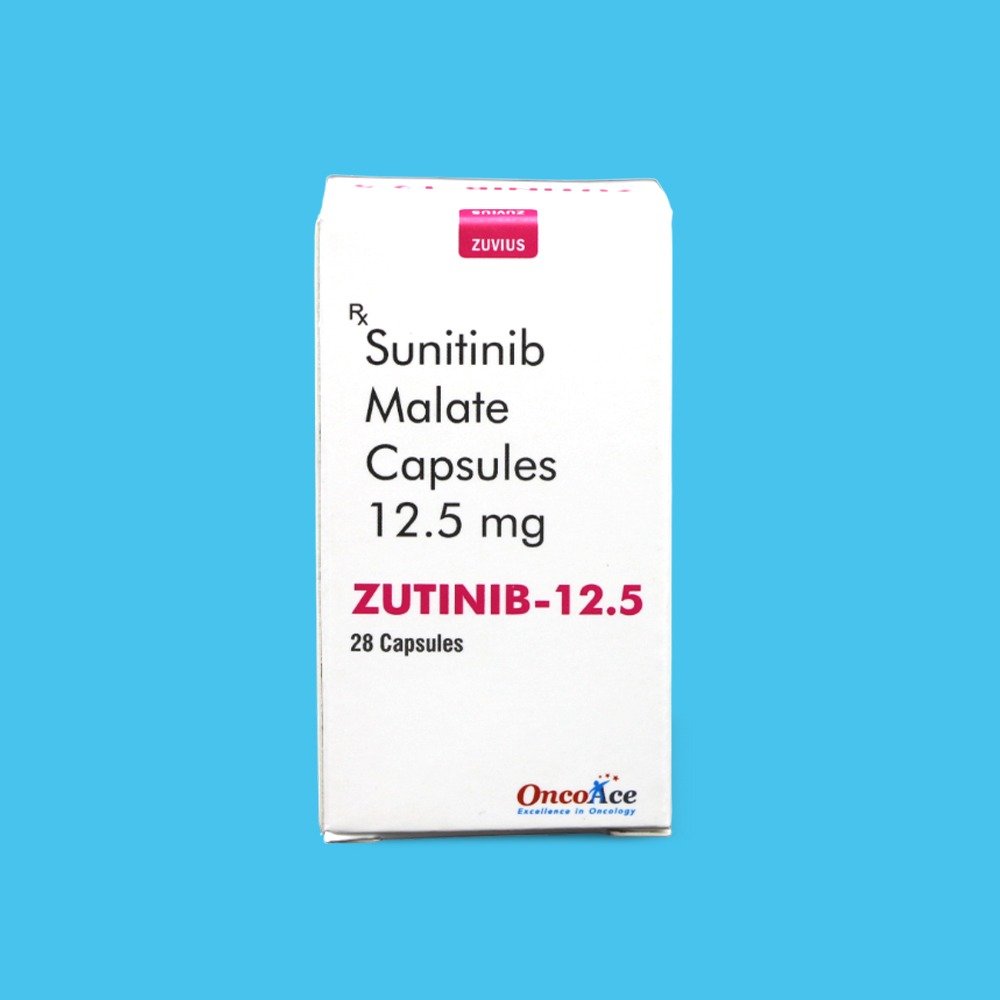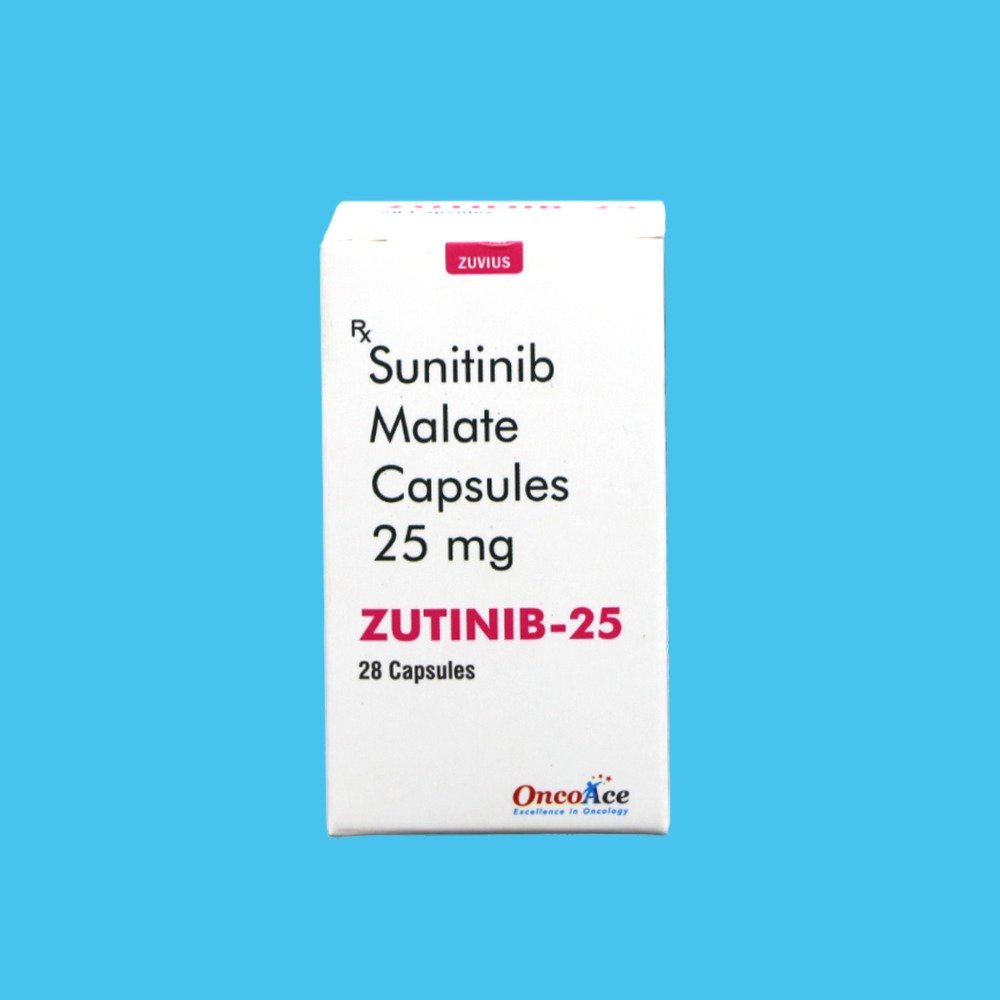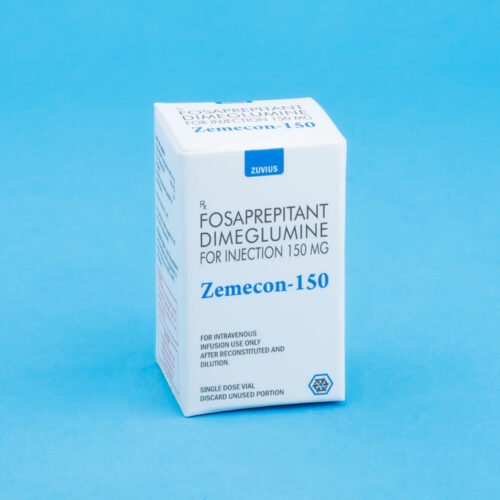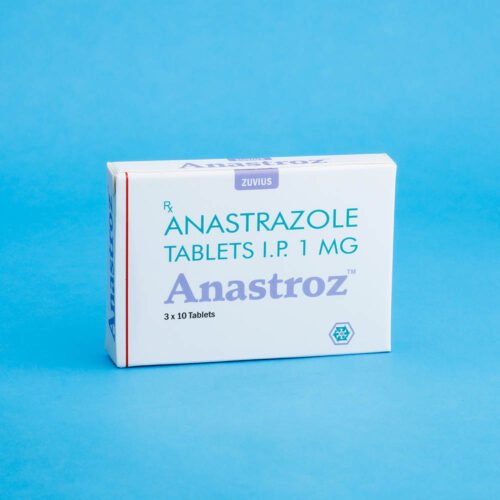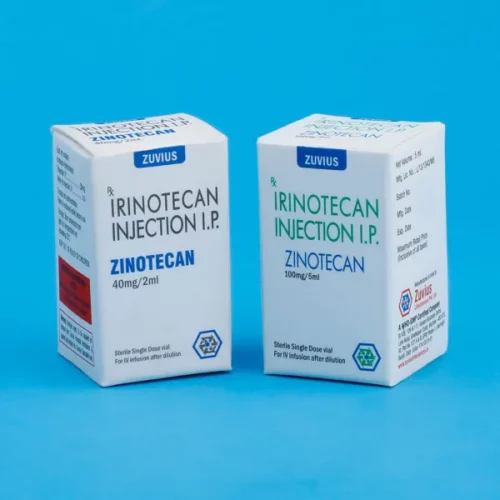Zutinib- Sunitinib Cap
Sunitinib Cap
Strength: 12.5mg / 25mg / 50mg
Pack Size: 1 x 28
Drug Class: Antineoplastics, Tyrosine Kinase Inhibitor; VEGF Inhibitor
Dosage and Administration:
Recommended Dose For GIST And Advanced RCC
The recommended dose of Zutinib for gastrointestinal stromal tumor (GIST) and advanced renal cell carcinoma (RCC) is one 50 mg oral dose taken once daily, on a schedule of 4 weeks on treatment followed by 2 weeks off (Schedule 4/2). Zutinib may be taken with or without food.
Recommended Dose For Adjuvant Treatment Of RCC
The recommended dose of Zutinib for the adjuvant treatment of RCC is 50 mg taken orally once daily, on a schedule of 4 weeks on treatment followed by 2 weeks off (Schedule 4/2), for nine 6-week cycles. Zutinib may be taken with or without food.
Recommended Dose For pNET
The recommended dose of Zutinib for pancreatic neuroendocrine tumors (pNET) is 37.5 mg taken orally once daily continuously without a scheduled off-treatment period. Zutinib may be taken with or without food.
Cold Storage: yes
Zutinib, an oral multi-kinase inhibitor, is the malate salt of sunitinib. Sunitinib malate is described chemically as Butanedioic acid, hydroxy-, (2S)-, compound with N-[2-(diethylamino)ethyl]-5-[(Z)-(5-fluoro-1,2-dihydro-2oxo- 3H-indol-3-ylidine)methyl]-2,4-dimethyl-1H-pyrrole-3-carboxamide (1:1). The molecular formula is C22H27FN4O2 • C4H6O5 and the molecular weight is 532.6 Daltons.
The chemical structure of sunitinib malate is:
 |
Sunitinib malate is a yellow to orange powder with a pKa of 8.95. The solubility of sunitinib malate in aqueous media over the range pH 1.2 to pH 6.8 is in excess of 25 mg/mL. The log of the distribution coefficient (octanol/water) at pH 7 is 5.2.
Gastrointestinal Stromal Tumor (GIST)
Zutinib is indicated for the treatment of gastrointestinal stromal tumor after disease progression on or intolerance to imatinib mesylate.
Advanced Renal Cell Carcinoma (RCC)
Zutinib is indicated for the treatment of advanced renal cell carcinoma.
Adjuvant Treatment Of Renal Cell Carcinoma (RCC)
Zutinib is indicated for the adjuvant treatment of adult patients at high risk of recurrent RCC following nephrectomy.
Advanced Pancreatic Neuroendocrine Tumors (pNET)
Zutinib is indicated for the treatment of progressive, well-differentiated pancreatic neuroendocrine tumors in patients with unresectable locally advanced or metastatic disease.
Sunitinib is a small molecule that inhibits multiple receptor tyrosine kinases (RTKs), some of which are implicated in tumor growth, pathologic angiogenesis, and metastatic progression of cancer.
Sunitinib was evaluated for its inhibitory activity against a variety of kinases (>80 kinases) and was identified as an inhibitor of platelet-derived growth factor receptors, vascular endothelial growth factor receptors, stem cell factor receptor (KIT), Fms-like tyrosine kinase-3 (FLT3), colony stimulating factor receptor Type 1 (CSF-1R), and the glial cell-line derived neurotrophic factor receptor (RET).
Sunitinib inhibition of the activity of these RTKs has been demonstrated in biochemical and cellular assays, and inhibition of function has been demonstrated in cell proliferation assays.
- Read the label carefully before use
- Keep out of the reach of children
- Do not exceed the recommended dose
Hepatotoxicity
Zutinib can cause severe hepatotoxicity, resulting in liver failure or death. Liver failure occurred at an incidence of <1% in clinical trials. Liver failure signs include jaundice, elevated transaminases and/or hyperbilirubinemia in conjunction with encephalopathy, coagulopathy, and/or renal failure. Monitor liver function tests (alanine aminotransferase [ALT], aspartate aminotransferase [AST], and bilirubin) before initiation of treatment, during each cycle of treatment, and as clinically indicated. Interrupt Zutinib for Grade 3 or 4 drug-related hepatic adverse reactions and discontinue if there is no resolution. Do not restart Zutinib if patients subsequently experience severe changes in liver function tests or have other signs and symptoms of liver failure.
Cardiovascular Events
Discontinue Zutinib in the presence of clinical manifestations of congestive heart failure (CHF). Interrupt Zutinib and/or reduce the dose in patients without clinical evidence of CHF who have an ejection fraction of >20% but <50% below baseline or below the lower limit of normal if baseline ejection fraction is not obtained.
Embryo-Fetal Toxicity
Advise females to inform their healthcare provider if they are pregnant or become pregnant. Inform female patients of the risk to a fetus and potential loss of the pregnancy.
Lactation
Advise lactating women not to breastfeed during treatment with Zutinib and for at least 4 weeks after the last dose
Infertility
Advise patients that male and female fertility may be compromised by treatment with Zutinib.

